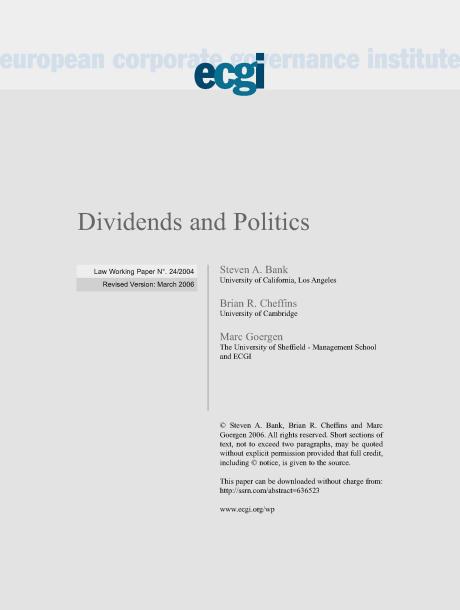
Dividends and Politics
Abstract
Influential contributors to debates concerning corporate governance assert that it is impossible to understand key trends without taking politics into account. This proposition has, however, remained largely untested. This paper therefore offers an empirical study of the relation between politics and corporate governance, with the focus being on the determinants of dividend policy in publicly quoted United Kingdom (U.K.) companies between 1950 and the present. The departure point is the well-known partial adjustment model of dividend policy, which we augment to take into account the ideological orientation of the party in power and other potentially salient proxies for politics (e.g. tax policy and dividend controls). The model is tested by reference to aggregate annual data on earnings and dividends. The results indicate that the political placement of the party in office lacks explanatory power. Moreover, even when politics manifests itself in regulation explicitly designed to regulate corporate behaviour, political variables generally do not correlate in the predicted direction with dividend pay-outs. The evidence therefore is inconsistent with the proposition that politics shape corporate governance.









